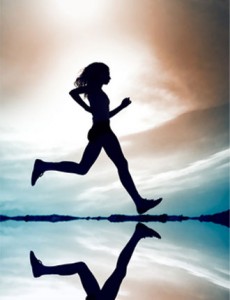Exercise is an excellent way of regulating anxiety and depression without running the risk of the side effects associated with the use of psychiatric medication. The research on the beneficial effects of exercise is more compelling than the findings for antidepressant medication. See the recent articles in the New York Review of Books about these comparisons. (“The Epidemic of Mental Illness: Why?” and “The Illusions of Psychiatry” both by Marcia Angell; more on these articles in a future blog posting on antidepressant medication.)
Exercise addresses the needs of the body as well as the mind, making it a natural complement for psychotherapy or analysis. During my intake of a prospective new patient or analysand, I will ask about the role exercise plays in the person’s life. And, I will “prescribe” a course of exercise that fits with the person’s interests and capacities. For some, it could be jogging or bike riding or swimming. For others, yoga or weight training.
My experience, both personal and professional, is that exercise facilitates deeper psychological work. During my analytical training in Zurich, i would walk about 40 miles per week and run close to 60! My routine of exercise and analysis and training, as well as working to earn Swiss francs, enabled me to individuate more efficiently and effectively and to enjoy good health in the process. To this day, I exercise at least one hour per day, often more.
So, is exercise a panacea? It is as close to a panacea as I have found, so far, that is. Below find a summary of the benefits of exercise from a meta-analysis of many research studies. (The Influence of Exercise on Mental Health by Daniel M. Landers, Arizona State University.)
Mental Health Benefits of Physical Activity
Reduced Anxiety
Best results with aerobic exercise.
Best after weeks of regular exercise.
Best benefits to those who are low fit to begin with.
Best benefits for those high in anxiety to begin with.
Reduced Depression
Best after weeks of regular exercise.
Best when done several times a week.
Best with more vigorous exercise.
Best for those who are more depressed (needs more research).
Benefits (anxiety and depression) similar to those for other treatments.
Activity associated with positive self-esteem.
Activity associated with restful sleep.
Activity associated with ability to respond to stress.

